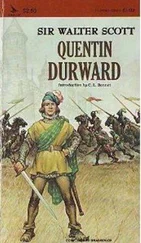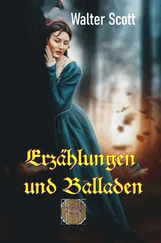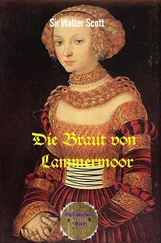Walter Scott - Letters on Demonology and Witchcraft
Здесь есть возможность читать онлайн «Walter Scott - Letters on Demonology and Witchcraft» весь текст электронной книги совершенно бесплатно (целиком полную версию без сокращений). В некоторых случаях можно слушать аудио, скачать через торрент в формате fb2 и присутствует краткое содержание. Жанр: История, на английском языке. Описание произведения, (предисловие) а так же отзывы посетителей доступны на портале библиотеки ЛибКат.
- Название:Letters on Demonology and Witchcraft
- Автор:
- Жанр:
- Год:неизвестен
- ISBN:нет данных
- Рейтинг книги:4 / 5. Голосов: 1
-
Избранное:Добавить в избранное
- Отзывы:
-
Ваша оценка:
- 80
- 1
- 2
- 3
- 4
- 5
Letters on Demonology and Witchcraft: краткое содержание, описание и аннотация
Предлагаем к чтению аннотацию, описание, краткое содержание или предисловие (зависит от того, что написал сам автор книги «Letters on Demonology and Witchcraft»). Если вы не нашли необходимую информацию о книге — напишите в комментариях, мы постараемся отыскать её.
Letters on Demonology and Witchcraft — читать онлайн бесплатно полную книгу (весь текст) целиком
Ниже представлен текст книги, разбитый по страницам. Система сохранения места последней прочитанной страницы, позволяет с удобством читать онлайн бесплатно книгу «Letters on Demonology and Witchcraft», без необходимости каждый раз заново искать на чём Вы остановились. Поставьте закладку, и сможете в любой момент перейти на страницу, на которой закончили чтение.
Интервал:
Закладка:
It is scarcely necessary to add that this comparatively recent tale is just the counterpart of the story of Bessie Dunlop, Alison Pearson, and of the Irish butler who was so nearly carried off, all of whom found in Elfland some friend, formerly of middle earth, who attached themselves to the child of humanity, and who endeavoured to protect a fellow-mortal against their less philanthropic companions.
These instances may tend to show how the fairy superstition, which, in its general sense of worshipping the Dii Campestres , was much the older of the two, came to bear upon and have connexion with that horrid belief in witchcraft which cost so many innocent persons and crazy impostors their lives for the supposed commission of impossible crimes. In the next chapter I propose to trace how the general disbelief in the fairy creed began to take place, and gradually brought into discredit the supposed feats of witchcraft, which afforded pretext for such cruel practical consequences.
LETTER VI.
Immediate Effect of Christianity on Articles of Popular Superstition—Chaucer's Account of the Roman Catholic Priests banishing the Fairies—Bishop Corbett imputes the same Effect to the Reformation—His Verses on that Subject—His Iter Septentrionale—Robin Goodfellow and other Superstitions mentioned by Reginald Scot—Character of the English Fairies—The Tradition had become obsolete in that Author's Time—That of Witches remained in vigour—But impugned by various Authors after the Reformation, as Wierus, Naudæus, Scot, and others—Demonology defended by Bodinus, Remigius, &c.—Their mutual Abuse of each other—Imperfection of Physical Science at this Period, and the Predominance of Mysticism in that Department.
Although the influence of the Christian religion was not introduced to the nations of Europe with such radiance as to dispel at once those clouds of superstition which continued to obscure the understanding of hasty and ill-instructed converts, there can be no doubt that its immediate operation went to modify the erroneous and extravagant articles of credulity which lingered behind the old pagan faith, and which gave way before it, in proportion as its light became more pure and refined from the devices of men.
The poet Chaucer, indeed, pays the Church of Rome, with its monks and preaching friars, the compliment of having, at an early period, expelled from the land all spirits of an inferior and less holy character. The verses are curious as well as picturesque, and may go some length to establish the existence of doubts concerning the general belief in fairies among the well-instructed in the time of Edward III.
The fairies of whom the bard of Woodstock talks are, it will be observed, the ancient Celtic breed, and he seems to refer for the authorities of his tale to Bretagne, or Armorica, a genuine Celtic colony:—
"In old time of the King Artour,
Of which that Bretons speken great honour,
All was this land fulfilled of faerie;
The Elf queen, with her joly company,
Danced full oft in many a grene mead.
This was the old opinion, as I rede—
I speake of many hundred years ago,
But now can no man see no elves mo.
For now the great charity and prayers
Of limitours, [39] [39] Friars limited to beg within a certain district.
and other holy freres,
That searchen every land and every stream,
As thick as motes in the sunne-beam,
Blessing halls, chambers, kitchenes, and boures,
Cities and burghes, castles high and towers,
Thropes and barnes, sheep-pens and dairies,
This maketh that there ben no fairies.
For there as wont to walken was an elf,
There walketh now the limitour himself,
In under nichtes and in morwenings,
And saith his mattins and his holy things,
As he goeth in his limitation.
Women may now go safely up and doun;
In every bush, and under every tree,
There is no other incubus than he,
And he ne will don them no dishonour." [40] [40] "Wife of Bath's Tale."
When we see the opinion which Chaucer has expressed of the regular clergy of his time, in some of his other tales, we are tempted to suspect some mixture of irony in the compliment which ascribes the exile of the fairies, with whih the land was "fulfilled" in King Arthur's time, to the warmth and zeal of the devotion of the limitary friars. Individual instances of scepticism there might exist among scholars, but a more modern poet, with a vein of humour not unworthy of Geoffrey himself, has with greater probability delayed the final banishment of the fairies from England, that is, from popular faith, till the reign of Queen Elizabeth, and has represented their expulsion as a consequence of the change of religion. Two or three verses of this lively satire may be very well worth the reader's notice, who must, at the same time, be informed that the author, Dr. Corbett, was nothing less than the Bishop of Oxford and Norwich in the beginning of the seventeenth century. The poem is named "A proper new Ballad, entitled the Fairies' Farewell, to be sung or whistled to the tune of the Meadow Brow by the learned; by the unlearned to the tune of Fortune:"—
"Farewell, rewards and fairies,
Good housewives now may say,
For now foul sluts in dairies
Do fare as well as they;
And though they sweep their hearths no less
Than maids were wont to do,
Yet who of late for cleanliness
Finds sixpence in her shoe?
"Lament, lament, old abbies,
The fairies' lost command;
They did but change priests' babies,
But some have changed your land;
And all your children sprung from hence
Are now grown Puritans,
Who live as changelings ever since
For love of your domains.
"At morning and at evening both,
You merry were and glad,
So little care of sleep and sloth
Those pretty ladies had.
When Tom came home from labour.
Or Cis to milking rose,
Then merrily, merrily went their tabor,
And merrily went their toes.
"Witness those rings and roundelays
Of theirs, which yet remain,
Were footed, in Queen Mary's days,
On many a grassy plain;
But since of late Elizabeth,
And later James came in,
They never danced on any heath
As when the time hath bin.
"By which we note, the fairies
Were of the old profession,
Their songs were Ave Maries,
Their dances were procession.
But now, alas! they all are dead,
Or gone beyond the seas;
Or farther for religion fled,
Or else they take their ease."
The remaining part of the poem is dedicated to the praise and glory of old William Chourne of Staffordshire, who remained a true and stanch evidence in behalf of the departed elves, and kept, much it would seem to the amusement of the witty bishop, an inexhaustible record of their pranks and feats, whence the concluding verse—
"To William all give audience,
And pray ye for his noddle,
For all the fairies' evidence
Were lost if that were addle." [41] [41] Corbett's Poems, edited by Octavuis Gilchrist, p. 213.
This William Chourne appears to have attended Dr. Corbett's party on the iter septentrionale , "two of which were, and two desired to be, doctors;" but whether William was guide, friend, or domestic seems uncertain. The travellers lose themselves in the mazes of Chorley Forest on their way to Bosworth, and their route becomes so confused that they return on their steps and labour—
Читать дальшеИнтервал:
Закладка:
Похожие книги на «Letters on Demonology and Witchcraft»
Представляем Вашему вниманию похожие книги на «Letters on Demonology and Witchcraft» списком для выбора. Мы отобрали схожую по названию и смыслу литературу в надежде предоставить читателям больше вариантов отыскать новые, интересные, ещё непрочитанные произведения.
Обсуждение, отзывы о книге «Letters on Demonology and Witchcraft» и просто собственные мнения читателей. Оставьте ваши комментарии, напишите, что Вы думаете о произведении, его смысле или главных героях. Укажите что конкретно понравилось, а что нет, и почему Вы так считаете.









